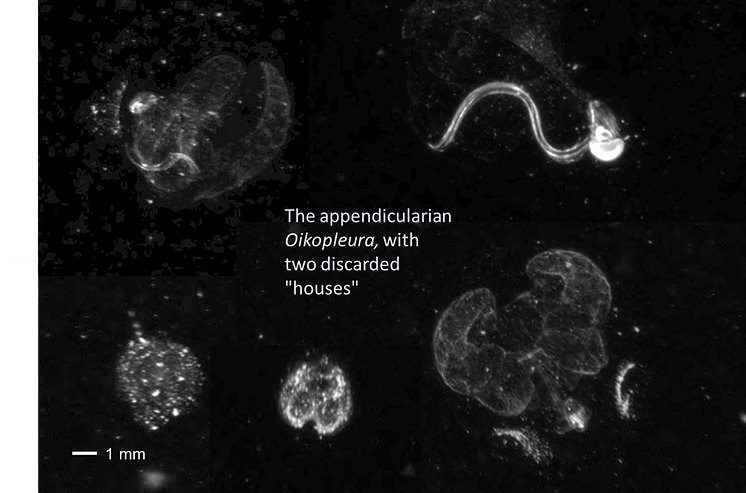
Bilde -
Fig. 2. Appendicularians in their house structures
go to media item
- Lisens:
- Bruk i media
Innholdet kan lastes ned, bli brukt og delt i ulike medier av for eksempel journalister, bloggere, spaltister, kommentatorer etc., med den hensikt å formidle, fortelle og kommentere dine pressemeldinger, oppslag eller informasjon, forutsatt at innholdet er uendret og brukt i sin helhet. Opphaver skal navngis i den grad og på den måten god skikk tilsier (dette betyr f.eks. at fotografer nesten alltid skal navngis).
- Filformat:
- .png
- Størrelse:
- 975 x 644, 429 KB
